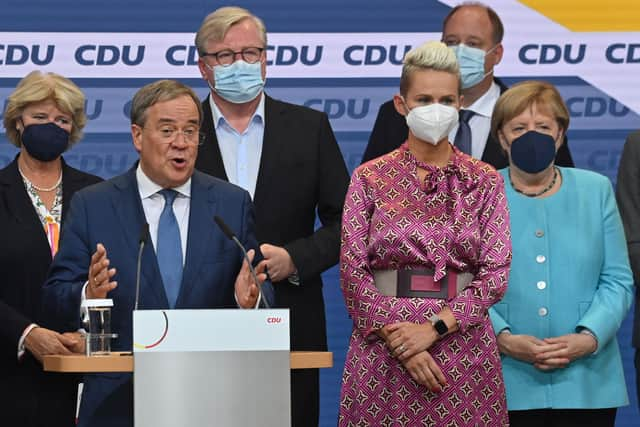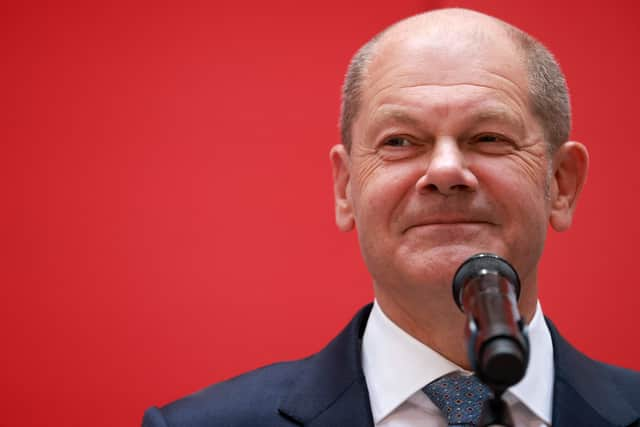German general election: Social Democrats narrowly beat Angela Merkel’s party as coalition talks begin
This article contains affiliate links. We may earn a small commission on items purchased through this article, but that does not affect our editorial judgement.
and live on Freeview channel 276
Germany is embarking on a potentially lengthy search for its next government.
It comes after the centre-left Social Democrats narrowly beat Chancellor Angela Merkel’s centre-right bloc in an election that failed to set a clear direction for Europe’s biggest economy under a new leader.


Advertisement
Hide AdAdvertisement
Hide AdWe want to hear from you: let us know what you think about this story and be part of the debate in our comments section below
At a glance: 5 key points
- Merkel’s Union bloc slumped to its worst result in a national election and appeared to put the keys to power in the hands of two opposition parties
- Both Social Democrat Olaf Scholz, who pulled his party out of a years-long slump, and Armin Laschet, the candidate of Merkel’s party who saw his party’s fortunes decline in a troubled campaign, laid a claim to leading the next government
- Scholz is the outgoing vice chancellor and finance minister and Laschet is the governor of Germany’s most populous state, North Rhine-Westphalia
- Whichever of them becomes chancellor will do so with his party having won a smaller share of the vote than any of his predecessors
- Who gets the job looks likely to depend on the decision of the prospective junior partners, the environmentalist Greens and the business-friendly Free Democrats - parties that traditionally belong to rival ideological camps


What’s been said
"Voters have spoken very clearly," Scholz said Monday.
"They strengthened three parties, the Social Democrats, the Greens and the Free Democrats, so this is the visible mandate the citizens of this country have given: these three parties should lead the next government."
Background
The only other option that would have a parliamentary majority is a repeat of the "grand coalition" of the Union and Social Democrats.
That is the grouping that has run Germany for 12 years of Merkel’s 16-year tenure and has often been marred by squabbling, but this time it would be under Scholz’s leadership with Merkel’s bloc as junior partner. There is little appetite for that, however.
Advertisement
Hide AdAdvertisement
Hide AdScholz said the Union "received the message from citizens that they should no longer be in government, but go into opposition".
Merkel’s outgoing government will remain in office until a successor is sworn in, a process that can take weeks or months. She announced in 2018 that she would not seek a fifth term.
Final official results gave the Social Democrats 25.7% of the vote and the Union 24.1%. Four years ago, they won 20.5% and 32.9% respectively.
The Greens took 14.8%, the Free Democrats 11.5% and the far-right Alternative for Germany 10.3% - a decline from the 12.6% it took to enter parliament for the first time in 2017.
Advertisement
Hide AdAdvertisement
Hide AdThe smallest party in the new parliament is the Left Party, which won just 4.9% of the vote.
A message from the editor:
Thank you for reading. NationalWorld is a new national news brand, produced by a team of journalists, editors, video producers and designers who live and work across the UK. Find out more about who’s who in the team, and our editorial values. We want to start a community among our readers, so please follow us on Facebook, Twitter and Instagram, and keep the conversation going. You can also sign up to our newsletters and get a curated selection of our best reads to your inbox every day.
Comment Guidelines
National World encourages reader discussion on our stories. User feedback, insights and back-and-forth exchanges add a rich layer of context to reporting. Please review our Community Guidelines before commenting.
